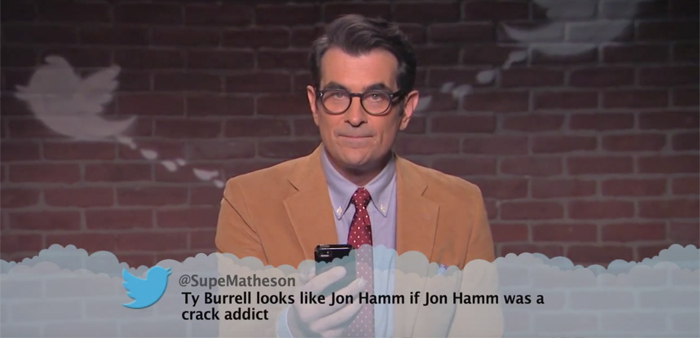We’ve Forgotten How To Argue Well (Hint: It’s Not About Yelling, Swearing, Or Mocking)
We’ve forgotten how to argue well (hint: it’s not about yelling, swearing, or mocking the other person). The art of civil discourse seems to be lost in our country.
Maybe it is because the internet gives us the opportunity to read and say horrible things without having to look at the person, the victim’s face.
I was going to include a video here – one of the many Jimmy Kimmel “Mean Tweets” celebrity edition videos… (where celebrities read horrible things people say about them on Twitter) but they’re all way too rated R for my blog (except for the President Obama one). So do what you will with that information. Maybe you wanna look it up and see for yourself?
It’s like we’ve forgotten how to talk like adults. I mean, no wonder the comment section on YouTube is so miserable and awful! I think we all need to go back to school and take a few classes, either again, or perhaps for the first time… like Principles of Logic and Debate.
Daniel Dennett, who has been called “our best current philosopher” raises a worthy question that challenges the tendencies and dynamics of today’s everyone-is-a-critic culture:
“Just how charitable are you supposed to be when criticizing the views of an opponent?”
Dennett suggests 4 steps on how to “compose a successful critical commentary” -or- how to argue well…
1. You should attempt to re-express your target’s position so clearly, vividly, and fairly that your target says, “Thanks, I wish I’d thought of putting it that way.
2. You should list any points of agreement (especially if they are not matters of general or widespread agreement).
3. You should mention anything you have learned from your target.
4. Only then are you permitted to say so much as a word of rebuttal or criticism.
These steps are not the product of some overly-optimistic, utopian view of how arguments could and should take place. Dennett points out this is actually a sound psychological strategy that accomplishes one key thing: It transforms your opponent into a more receptive audience for your criticism or dissent, which in turn helps advance the discussion.





Great points here Brian. The dialogue on Facebook, and I’m sure all other social media, is replete with vicious attacks – with no apparent purpose but to make those who disagree look foolish.
This is bully behavior – punch the “opponent” in the face and get them moving backward so they can’t take advantage of your weaknesses. Put another way that probably hits closer to home for most of us, If I can get the spotlight shining on my opponent’s hypocrisy, I won’t be forced to deal with my own.
There is no humility in these conversations. Winning the argument seems to be more important than understanding how someone might come to see things differently than they do, even more important than being truly informed and knowledgeable about the issues at hand.
When I was growing up, my Dad would often tell me “the older I get, the less I know for sure”. I would just as often think, “nice little saying Dad”. Now that I’m in my 50′s I think I understand what he meant. Many of the things I was so sure of in my 20′s and 30′s have become rather fuzzy over the years, and I have realized I didn’t have a clue about some of them. I can’t help but wonder how these conversations would change if we could all look honestly at our own shortfalls before pointing out the other guy’s – you know, just call me plankeye.
Thanks for adding your voice here Bryan. I have a similar memory of people in my life saying “The older I get the less I know for certain,” and a similar reaction… now I feel like I understand, really understand what they were saying. The other thing I’m beginning to realize is that I don’t have to have (or voice) an opinion about everything – like, the world carries on and God’s Kingdom suffers no violence when I keep my opinions to myself. Ha! Who would have ever thought?